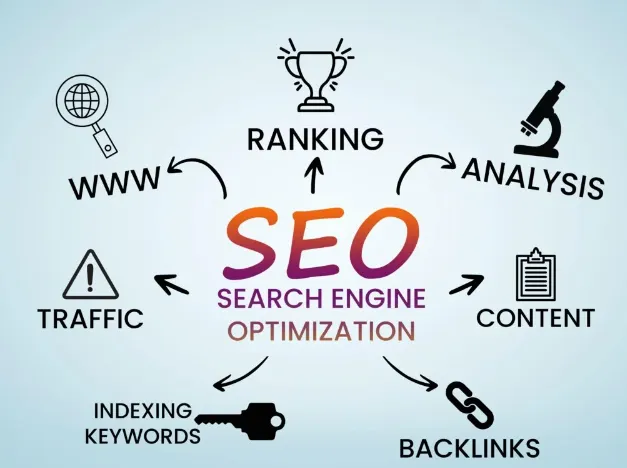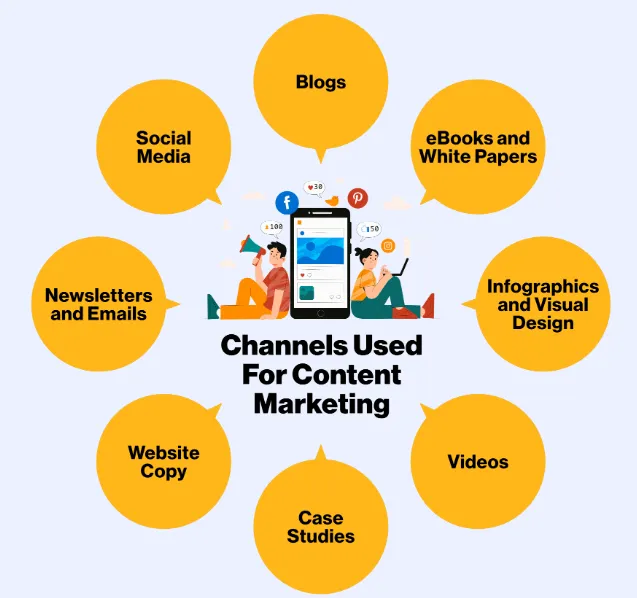Digital Marketing uses digital channels such as social media, search engines, and email to promote products or services. It not only supports brands but also connects potential customers.
Digital Marketing plays a pivotal role in effectively promoting brands and engaging with customers, serving as a cornerstone for success in today’s business landscape. Understanding the key components of digital marketing is very essential for navigating the world of the internet and staying ahead in the competitive market.
Here are a few key components of digital marketing:
1. Search Engine Optimization (SEO)

Search Engine Optimization (SEO) is the practice of enhancing a website’s visibility on search engines like Google, Bing, and Yahoo to increase organic (non-paid) traffic. The goal of SEO is to improve a website’s ranking in search engine results pages (SERPs) for relevant keywords and phrases, making it easier for users to find the site when searching for information related to the business.
Benefits of SEO:
- Increased Visibility and Traffic: Higher rankings in search results lead to more visibility and, consequently, more visitors to your site.
- Credibility and Trust: Websites that appear at the top of search results are often perceived as more credible and trustworthy by users.
- Cost-Effective: Unlike paid advertising, organic traffic from SEO does not incur costs per click, making it a cost-effective long-term strategy.
- Competitive Advantage: Effective SEO can give you an edge over competitors by positioning your business as the go-to source in your industry.
SEO is an ongoing process that requires continuous monitoring and updating to keep up with changes in search engine algorithms and user behavior.
2. Content Marketing

Content Marketing is a strategic approach focused on creating, publishing, and distributing valuable, relevant, and consistent content to attract and engage a clearly defined audience — and ultimately, to drive profitable customer action. Unlike traditional advertising, which often directly promotes products or services, content marketing aims to provide value to the audience by addressing their needs, interests, and pain points.
Blog posts, articles, videos, and infographics are powerful tools for conveying your brand message and establishing authority in your industry.
Benefits of Content Marketing:
- Builds Brand Awareness: Consistent, high-quality content increases your brand’s visibility and helps establish your business as a thought leader in your industry.
- Engages Your Audience: By providing valuable and relevant content, you can engage your audience and keep them coming back for more.
- Generates Leads: Well-crafted content can attract potential customers to your website, where you can convert them into leads through calls-to-action (CTAs) and landing pages.
- Supports SEO: High-quality content improves your website’s SEO, leading to higher search engine rankings and increased organic traffic.
- Builds Trust and Credibility: By providing helpful, informative content, you can build trust with your audience, which is crucial for converting leads into customers.
- Educates Your Audience: Content marketing allows you to educate your audience about your products, services, and industry, helping them make informed decisions.
Content marketing is a long-term strategy that requires patience and consistency, but when done effectively, it can significantly contribute to a brand’s success by building strong relationships with customers and driving business growth.
